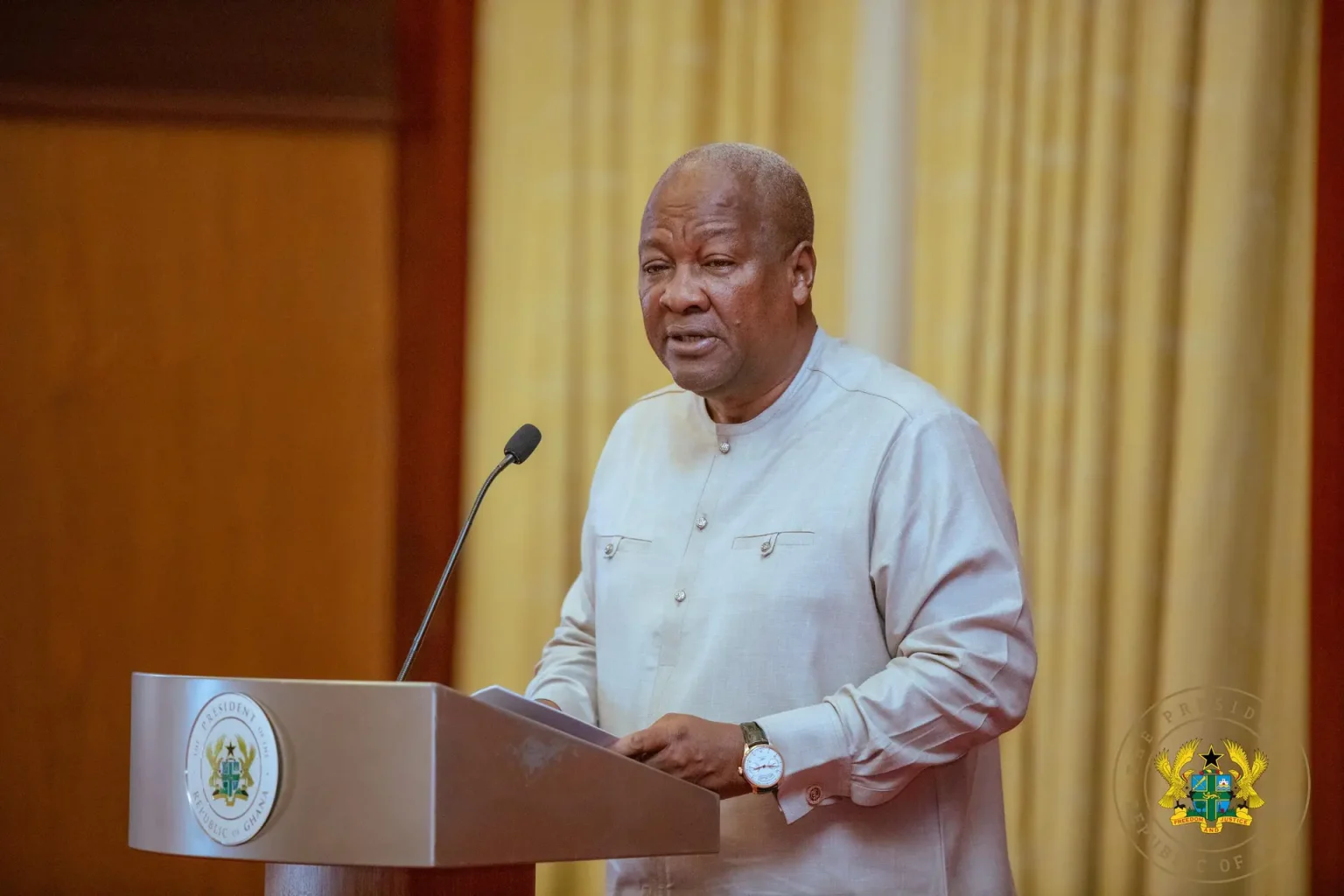President John Dramani Mahama, in a recent address, provided a comprehensive update on his administration’s progress during its first 120 days, focusing on fulfilling campaign promises, economic reforms, and good governance. Central to his address was the clarification regarding the continued existence of the COVID-19 levy, a tax he had pledged to abolish during his campaign. While acknowledging the promise, President Mahama explained that the levy’s intricate link to Ghana’s ongoing IMF program necessitates its inclusion in a broader VAT rationalization exercise scheduled for September 2025. This strategic approach, agreed upon with multilateral partners, aims to ensure the country’s fiscal stability while adhering to the terms of the IMF program. The President emphasized that despite the COVID-19 levy remaining in place, his administration has successfully delivered on three other promised tax repeals, including the Electronic Transfer Levy (E-Levy), the Emissions Levy, and the Betting Tax. This demonstrates a commitment to fiscal responsibility and responsiveness to public concerns.
Beyond the specific tax repeals, President Mahama highlighted a broader sweep of tax reforms enacted within the first 120 days, significantly exceeding initial promises. These include amendments to the Value Added Tax (VAT), Income Tax, and the removal of VAT on motor vehicles. Moreover, key legislation aimed at strengthening public financial management, promoting sustainable growth, and regulating the energy and petroleum sectors has been passed. These legislative achievements underscore the administration’s focus on establishing a robust and transparent fiscal framework for the long-term economic health of the nation. The President’s emphasis on swift action and exceeding initial commitments underscores a dedication to efficient governance and a focus on delivering tangible results.
President Mahama also addressed the crucial aspect of good governance, highlighting efforts to streamline the government and promote integrity in public office. He pointed to the appointment of a smaller cabinet – the smallest in the Fourth Republic – demonstrating a commitment to efficiency and cost-effectiveness in government operations. The nomination of Metropolitan, Municipal, and District Chief Executives further solidifies the administration’s focus on building a strong governance structure from the national to the local level. Crucially, a revised Code of Conduct for public officials has been implemented, addressing critical areas such as the prohibition on purchasing state property, regulations on gifts, and clear monetary limits for official engagements. This reinforces the administration’s commitment to transparency and accountability in public service.
The President’s address also touched upon the positive impact of the National Economic Dialogue, a platform for collaborative policymaking. He noted the stabilizing effect of the dialogue’s recommendations on the Ghanaian currency, a gradual decrease in inflation, and a marked reduction in government borrowing, a practice he characterized as a hallmark of previous administrations. The emphasis on implementing recommendations from the dialogue signals a commitment to evidence-based policymaking and a collaborative approach to addressing economic challenges. Furthermore, the President highlighted the dialogue’s focus on promoting industrialized agriculture and aligning skills development with national priorities, key strategies for long-term economic growth and development.
President Mahama’s address underscored the importance of fiscal discipline and long-term economic stability. He outlined reforms to the Public Financial Management Act, including the introduction of a debt rule aimed at reducing the debt-to-GDP ratio to 45% by 2034. This ambitious target reflects a commitment to fiscal sustainability and responsible debt management. Furthermore, the establishment of an operational rule requiring an annual primary surplus of at least 1.5% of GDP reinforces the focus on fiscal prudence and building a strong foundation for future economic growth. The creation of an independent fiscal council, mandated to monitor the government’s adherence to these rules, adds an important layer of accountability and transparency to the fiscal management process.
In conclusion, President Mahama’s address painted a picture of a government actively engaged in fulfilling campaign promises, implementing crucial economic reforms, and promoting good governance. While acknowledging the need to maintain the COVID-19 levy due to its connection to the IMF program, he showcased a range of achievements in tax reform, fiscal management, and public sector integrity. The President’s emphasis on collaboration, evidenced by the National Economic Dialogue, and his commitment to long-term economic stability through fiscal discipline and debt reduction suggest a strategic approach to navigating Ghana’s economic landscape and building a sustainable future for the nation. The comprehensive nature of the address and the focus on concrete actions taken within the first 120 days served to reinforce the administration’s commitment to transparency, accountability, and delivering on its promises to the Ghanaian people.














